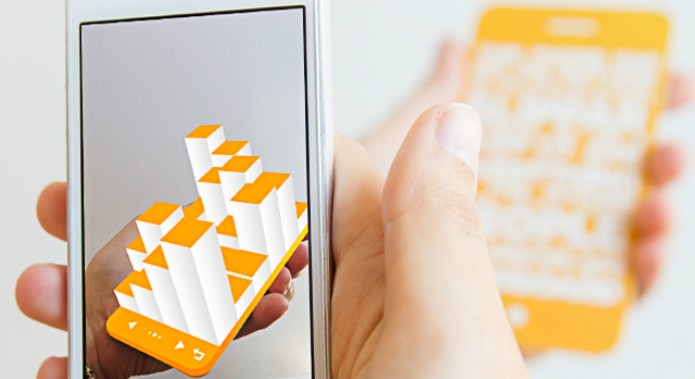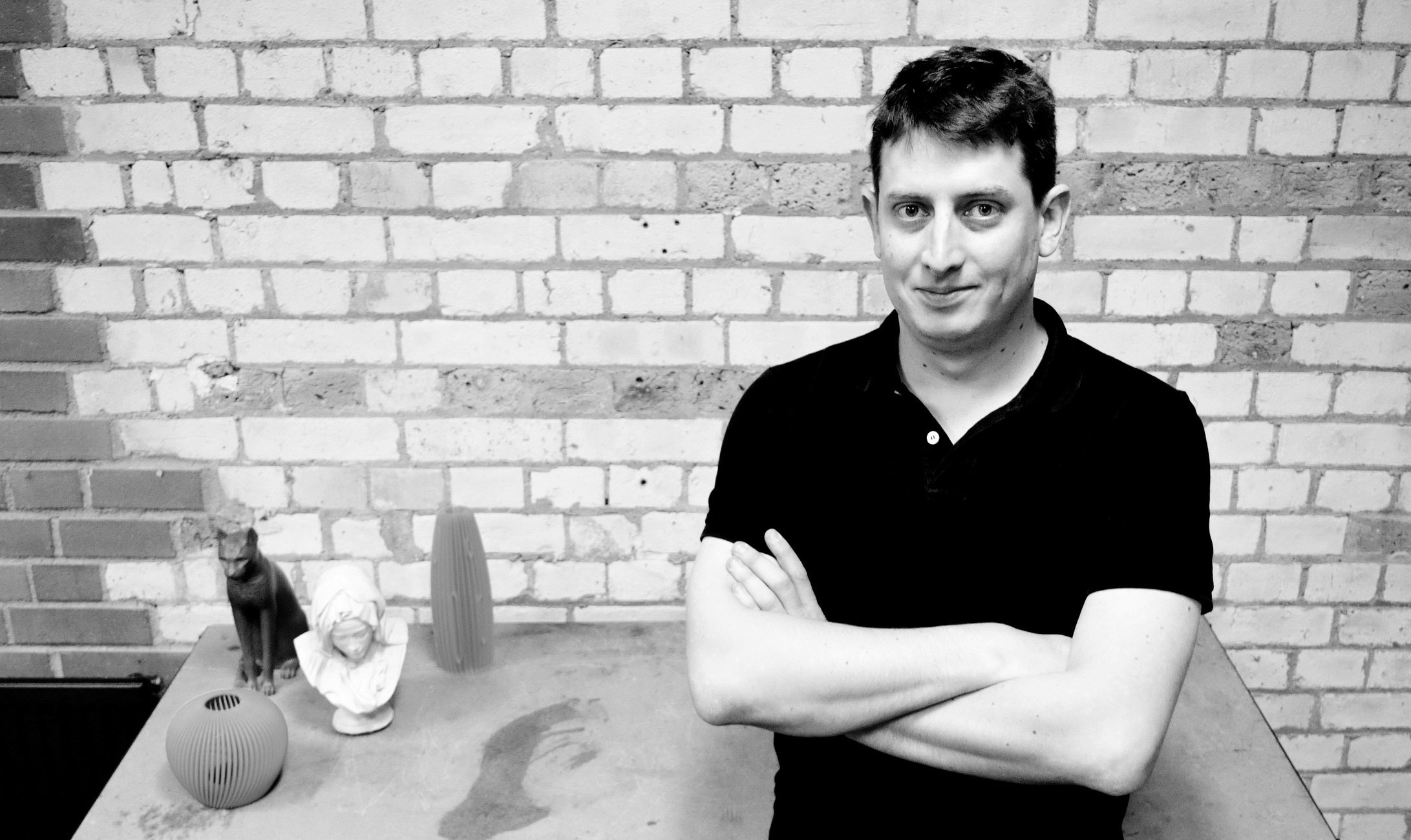The leading Augmented Reality (AR) app Blippar’s co-founder Jessica Butcher gave a keynote speech at EXPAND London that happened on March 10 in London. The event brought together the city’s cutting-edge startups, founders who made headlines, VCs, accelerators and incubators. Jessica will be participating in the panel Tech Changing the Way We Search at EXPAND London September.
Blippar is on a roll. Having completed another successful funding round, the app promises to bring ‘Visual Discovery’ and Augmented Reality technology to the next level. The static world is challenged and the potential of the technology has already revealed signs of the future success. Jessica Butcher, talked to us about the enormous possibilities that are still untapped on the margins of the physical and virtual worlds. In the first part of the interview, we tackled Blippar’s vision and modus operandi.
Blippar is addressing our generation as the curious one. Hasn’t curiosity always been there driving progress?
I think the younger generation has so much more access to information than any other generation previously. That has transformed into a new behaviour of curiosity and constant education, whether it is following a Twitter feed or professional networks, social media. We could mention Facebook politicising people and making them much more aware of issues. I think this scale of access to information has definitely fuelled huge amount of curiosity.
I still think that presents challenges as well because it is not always easy to find information or find it in the right, unbiased format. We are fairly limited with the tools available to us in terms of how we can feed our curiosity. Right now, search is almost entirely text-based and as such, limited by our ability to articulate what it is we want to know more about (and how we ask the question!) – plus the reliability of the results we might get back is in question because it is down to who ranks highest, in addition, there’s so much unstructured user-generated content. Nonetheless, nothing has changed in regards to the existence of curiosity, the changes occur in the ways that we can now sate our curiosity – something that Blippar is on the forefront of trying to disrupt.
If technology made our curiosity seek new frontiers, what role has sensory technology played in it?
Sensory technology is really interesting as it is an amplification of our physical senses in a much more immediate way. Let’s have an example of touch as one of the first sensory technologies, we now have oyster cards, all sorts of applications and the ability to simply touch your phone or the credit card to pay or access content immediately – it is revolutionary! In certain cases, it may be unsettling since you can now pay far too quickly. Technologies like Shazam are the ‘ears’ of our devices – listening and unlocking content on the basis of interpreting sound waves.
From Blippar’s perspective, we feel that the eyes are the most powerful of all senses. Eyes are responsible for the vast majority of our cognition and understanding.
We can’t underestimate the power of being able to look at something in the physical world and extract further information from it.
And that is a new behaviour because we simply were not able to do that earlier. We could describe what we are looking at on a basic level, but we couldn’t add layers and layers of information to it. What is that strange plant or who is the artist of the painting I see right now? What is that colour and where can I find that same item? It relates to anything – art and history, education, fashion, science, natural world… Just imagine the ability to look at a ruin and see what it looked like when it was first built – isn’t the power and potential of this just mind-bogglingly awesome? We are very, very excited to be working with such a cutting-edge technology that will add a whole new dimension to our understanding of the physical world around us.

Whereas it would take the child years to develop an adult’s cognition, we expect the technology to have progressed to an ‘adult brain’ within the coming year.
Although you call it a new behaviour, did we always want to have that ability but simply lacked resources to achieve it?
A lot of technology enables behaviours we didn’t know we needed. Nobody immediately needed news updates the minute that they happen. Take Twitter – did we ever imagine we needed X number of characters with the constantly updated feed from people we don’t know or have never met. It’s a bizarre concept, that people now can’t live without. Progress is created by those people who challenge the accepted norms and therefore, create new behaviours as technology emerges. The ability to connect the physical, static, passive world with the whole world of virtual information and education about what we are looking at, has fascinating ramifications.
At the recent TechCrunch Disrupt, your co-founder Ambarish Mitra compared Blippar to the Wikipedia but of the physical world. Following the association, do you at some point plan to allow users add content/information to Blippar’s trove?
That is definitely in our pipeline. We want this to feel like a democratic behavioural movement. We want to ensure that the information is relevant and contextual depending on whoever is looking at it. Even if we think about it as of sheer logistics, how to provide interesting information about everything around us with just the information that we have now? It will be very hard to do with the information that currently exists. So, absolutely, we will make Blippar the platform where people can comment and add information that is not there just yet; and flesh out the virtual content around the physical world. There is, however, already a lot of very good, impartial existing information online that we can tap into, it simply needs to be associated with the physical world and user-generated content will be a huge part of that, no question.

How are you going to control it? What about trolls and those maybe even trying to disrupt your platform?
We have lots of ideas as you can imagine. There are enough models demonstrating that it is possible to run such a model in a responsible way. Take Wikipedia and Google – there are verified sources of content and then you have sort of public, user-generated content. It is possible to be transparent about what type of content the user is receiving. All of this will evolve as the feature launches, develops and grows. Currently our algorithm harnesses Artificial Intelligence (AI). We simply don’t anticipate any challenges along those lines.
There will be some very interesting updates from Blippar over the course of the year. It took us 4-5 years to build the app to its current version which is world-leading in terms of what it can recognise and do. Still, right now, it would be fair to say that the platform has the cognition of a 4-year-old child – it knows roughly what it’s looking at but it can’t necessarily articulate exactly what it is or properly interpret it as accurately as we would like.
We want to ensure that each time you interact with that content you will get a valuable, memorable and rewarding experience.
Towards the end of the year, we expect the Blippar eye of the phone to use sophisticated AI and deep learning tools not only to recognise things, but contextually identify them and return the right, relevant information.
Augmented Reality (AR) is not the newest of all technologies (with the first generation of companies working on it), what do you think made Blippar so successful? Is it your business model that is disruptive?
There are number of things we’ve done that have contributed to our success. Firstly, we’ve nailed the technology piece very well. Our technology is very reliable, it recognises the subject quickly.
The AR experience is down to the content that is delivered on recognition and how relevant, exciting and enticing that content is.
And that is one of the areas, where we as a business, made a call to closely work with our partners to curate and consult on the type of content that should be delivered. That has come at a risk for us as it meant that we have been able to do fewer interactive things. So you wouldn’t stumble across Blipps, as we call them, multiple times a day or even a week. It may be that you, as one particular user and one particular demographic, haven’t been targeted by any work we’ve done with our partners more than once or twice in any given year, but what we want to ensure is that each time you interact with that content you will get a valuable, memorable and rewarding experience.
That has given us a huge amount of data on what works and what doesn’t and ultimately we feed it into the expansion of the behaviour as we build the full proposition – that is the move towards proactive, everyday real world visual discovery as opposed to reactive blipping which is what we’ve done to date. This will a huge and seismic shift for the business.
The next edition of EXPAND London will bring together 50 high growth companies,
expert speakers, and top class Talent.
To get an exhibitor’s slot contact Frankie@jobbio.com or grab a FREE ticket for Talent











